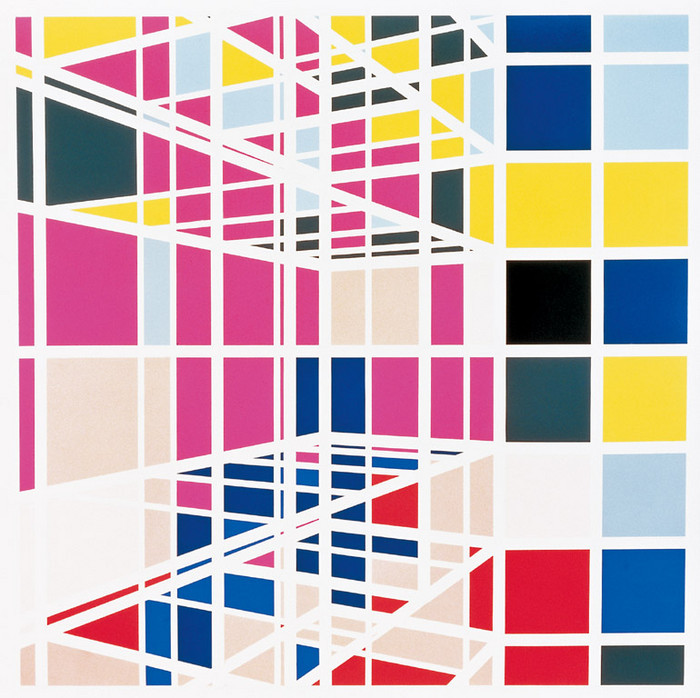Tracing the Grid. The Grid in Art after 1945
05 May - 07 Oct 2012
TRACING THE GRID. THE GRID IN ART AFTER 1945
5 May - 7 October, 2012
Like no other structure, the grid defines art of the twentieth and twenty-first centuries. This has been extensively researched in relation to the avant-garde, Piet Mondrian, and the Bauhaus movement; on the other hand, the significance of the grid in art since 1945 has never before been represented in an overview. The exhibition fills this gap and illuminates the importance of the grid in art, presenting examples from around fifty artists. Here we can see two main trends: in concrete and constructivist art, the grid is appreciated for its formal severity and as a principle of repetition. Parallel to this, artists such as Sigmar Polke and Roy Lichtenstein adopted the grid as a social model forming the basis for the media world, architecture, town planning, or data acquisition. Today many young artists such as Esther Stocker, Sarah Morris, Michiel Ceulers, and Tim Stapel no longer distinguish between these two approaches, but are fascinated by the immense creative potential of the grid structure.
Funded by the German Federal Cultural Foundation
5 May - 7 October, 2012
Like no other structure, the grid defines art of the twentieth and twenty-first centuries. This has been extensively researched in relation to the avant-garde, Piet Mondrian, and the Bauhaus movement; on the other hand, the significance of the grid in art since 1945 has never before been represented in an overview. The exhibition fills this gap and illuminates the importance of the grid in art, presenting examples from around fifty artists. Here we can see two main trends: in concrete and constructivist art, the grid is appreciated for its formal severity and as a principle of repetition. Parallel to this, artists such as Sigmar Polke and Roy Lichtenstein adopted the grid as a social model forming the basis for the media world, architecture, town planning, or data acquisition. Today many young artists such as Esther Stocker, Sarah Morris, Michiel Ceulers, and Tim Stapel no longer distinguish between these two approaches, but are fascinated by the immense creative potential of the grid structure.
Funded by the German Federal Cultural Foundation

